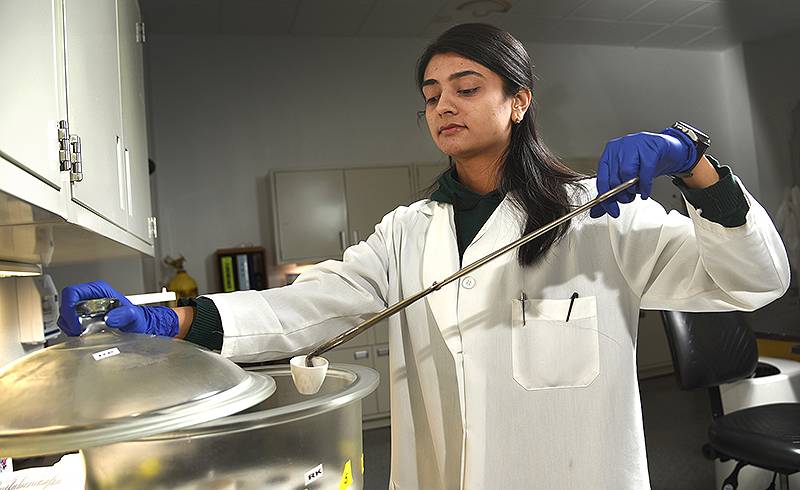
Today, the U.S. uses about 16 million tons of virgin plastics a year for single-use food packaging. A new study led by a Texas Tech researcher is moving to shed light on how to develop innovative and high-performance packaging from agricultural residues like cotton stalks and sorghum stover for fresh foods with a goal of reducing the problematic plastics and ensuring long-term food safety.

“Plastics are a major environmental issue, and the development of plant-based food packaging provides an incredible opportunity for us to provide many of the values that we currently enjoy with plastics while reducing plastic waste,” said Glen Ritchie, Chair and Professor of Crop Physiology within Texas Tech’s Department of Plant & Soil Science.
Challenges in bio-based food packaging will be overcome by technologies leveraging the inherent advantages of the plant cell wall, such as water resistance and strong 3D-networked structure, said the study’s principal investigator Kala Rajan, a Department of Plant & Soil Science Assistant Professor.

Another aspect of Rajan’s research deals specifically with meat packaging, where it will be studied as a model system and the existing technologies for thermoforming, vacuum- and heat-sealing will be retrofitted to utilize agro-based packaging films and foam trays.
“My research will wholistically evaluate agro-based packaging, including food pathogen resistance, meat sensory attributes, and biodegradation, to ultimately improve the industry’s sustainability,” Rajan said.

Rajan received the ‘2024 New Innovator in Food & Agriculture Research Award’ from the Foundation for Food & Agriculture Research (FFAR) to establish a research program on, “Developing multifunctional and durable agro-based food packaging to reduce toxic plastic waste and sustainably advance a bioeconomy.” She is the first researcher at Texas Tech to receive the FFAR-New Innovator award, which supports early-career scientists through a three-year $450,000 grant.
An international expert in renewable bioproducts, Rajan is based in the university’s 110,000 square-foot Fiber & Biopolymer Research Institute (FBRI) located some six miles east of the main campus. She was hired last year as a part of FBRI’s strategic research initiative implemented by Noureddine Abidi, the institute’s director, and the Davis College Associate Dean for Research. Prior to joining Davis College last September Rajan served as a University of Tennessee-Knoxville research scientist.
While at Tennessee’s Center for Renewable Carbon, she was instrumental in securing approximately $1 million in federal grants for developing bio-based alternatives to PFAS – widely used, long-lasting chemicals, components of which break down very slowly over time.
At Texas Tech, she co-directs a $2.6 million USDA grant which also targets the elimination of PFAS in closed-loop agricultural production systems. Her doctorate in food science is from the University of Arkansas-Fayetteville.
CONTACT: Glen Ritchie, Department Chair, Department of Plant & Soil Science, Texas Tech University at (806) 742-4325 or glen.ritchie@ttu.edu
0217NM25 / For more information related to Kalavathy Rajan’s research, please click here
